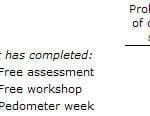Does your employee wellness business, health club or yoga studio have high-maintenance employees who require constant parenting and supervision just to get through the day?
These folks inject the drama of their personal lives into the workplace, consuming your mental and physical energies and distracting everyone around them.
We once had a staffer whose wife was expecting a child as the result of an extramarital relationship. Our employee literally spent an hour or more every day venting about the situation to coworkers and managers. The soap opera distracted everyone in the office. And the staffer’s assigned work got very little attention.
Their personal issues may be marriage problems, troubled kids, or their own health concerns and emotional difficulties. Or they may simply be people who always seem to encounter crises – the car breaks down AND the kids are sick AND the babysitter can’t come AND the basement floods and…and…and.
Now, we’re not talking about people who lack the skills or motivation to do the job. That’s an entirely different issue.
Soap opera stars have good, even great, professional capabilities. When they’re fully focused on the job, their results are usually phenomenal.
So it’s very tempting to avoid confronting soap opera stars about problem behaviors and poor work results. It’d be far easier if they were simply unable or unwilling to do good work, right? And it’s only natural to feel sympathy for their perpetual plight.
Do these scenarios ring a bell?
“Carey’s such a good health coach with clients when she’s really on top of things… I hate to fire her…if only she’d stay focused and stop bringing all these problems into the office…”.
Or perhaps like this:
“I feel bad for Chuck…his wife left him and now he’s breaking up with his girlfriend plus financial problems. He’s so good with personal training clients that I don’t want to get rid of him… if only he’d stop talking about all these problems all the time…”.
Unfortunately, your business rarely gets their full attention. Meanwhile, everyone’s productivity and job satisfaction suffers.
Tips For Spotting Soap Opera Stars
1) Continual interjection of their personal issues into the workplace
Some soap opera stars conduct performances throughout the day where they share their trials and tribulations with everyone around them. And others may spend hours on the phone or in email dealing with their personal issues.
Even if their work gets done despite these issues, it won’t be long before they distract and annoy coworkers, who’ll be quick to notice and complain.
2) Ongoing failure to meet work expectations due to personal issues
Employees who constantly miss or renegotiate deadlines due to a morass of personal issues can jeopardize the performance or reputation of your business. They also demoralize others whose work and performance relies on their contributions.
For example, an employee who consistently misses scheduled appointments or reschedules them at the last minute — particularly with current or future customers — can jeopardize the performance and reputation of your business. Someone with frequent last-minute absences can create havoc with the employee work schedule. And other employees who rely on their contributions need to be able to count on the soap opera star to deliver on time, as committed…no excuses.
3) Consistent over-disclosure about personal issues
Customers and employees don’t want or need to hear the details about the life challenges that your employees are facing.
We traced customer turnover in one wellness business to a professional employee who routinely dumped her personal concerns on clients. And we talked to a customer service rep recently who spelled out the details of his recent surgery, including some details we really, really didn’t need to know.
4) Monopolizing your time to the detriment of your team’s work performance
As a manager, your most valuable asset is your time — and your most important decision is how you choose to spend it. You’ve got to balance your own work objectives while coaching your entire team.
Can you really afford to give frequent and lengthy pep talks to your soap opera star?
Ask yourself if you’re spending hours every week venting about their issues with other managers or your boss — or worse yet, your family and friends.
Are you unavailable to support other staffers because you’re dealing with issues posed by this person?
If you spot one or more of these red flags, use these tips to give you the confidence to take action.
Tips For Handling Soap Opera Stars
1) Consult an employment attorney.
This step is especially important if the employee may be in a legally protected group. These protections extend to employees in even smaller businesses. You can fire individuals who belong to a protected class – but you want to make sure that your decision-making and termination process will pass muster.
Examples of legally protected classes can include women, people over 40, certain racial and ethnic groups, those protected by the Americans with Disabilities Act (ADA), and those covered by the Family Medical Leave Act. We emphasize getting legal advice because this area can be complex and tricky. For example, someone who says his poor performance is related to medication may be protected by ADA.
It’s especially important to get legal advice when the soap opera star attributes their problem behavior or deficient work results to personal health issues, since the legal implications can be complex.
2) Work with your human resources manager to develop a plan.
You’re not the first manager to encounter these issues, so let the experiences of others help you navigate these rough waters. If you don’t have an HR specialist, get outside help from a business coach or consultant experienced in human resources issues.
3) Role-play performance feedback before you confront your soap opera star.
Work with your HR manager or outside resource to anticipate likely responses and plan how you’ll respond in turn.
If you can track down a copy of this excellent and unfortunately out-of-print book, we highly recommend LifeScripts for Managers, by Stephen Pollan. It walks you through likely responses and recommends responses for just about every tough conversation a manager is likely to have.
4) Hold the employee responsible for correcting the situation.
Don’t “parent” them by finding auto repair shops, new babysitters, lending them money, and the like.
5) Give yourself a deadline to resolve the situation.
Either the employee changes his or her behavior and results, or you need to terminate them. The most common mistake we see is letting it drag on and on. These situations rarely improve when ignored.
6) Give timely and honest feedback on their efforts to improve.
If you don’t see improvement, take action to move them out of the business quickly.
7) Act immediately when the employee is actively harming the business.
Behaviors like missing or constantly rescheduling customer appointments damage the image of your business in ways you can’t even see. Confront the behavior promptly, set crystal-clear expectations, and demand immediate improvement.
8) The law does not require lengthy disciplinary proceedings
You do not have to tolerate the performance issues related to soap opera stars.
Employment in the U.S. is generally at-will. In a nutshell, that means that you generally can fire an employee at any time for almost any reason.
You do not have to give multiple warnings, impose suspensions, or attempt other forms of progressive discipline — although these tools can be helpful in defending your business against certain future legal claims.
Just remember that your reasons for termination mustn’t violate the law (see #1 above).




